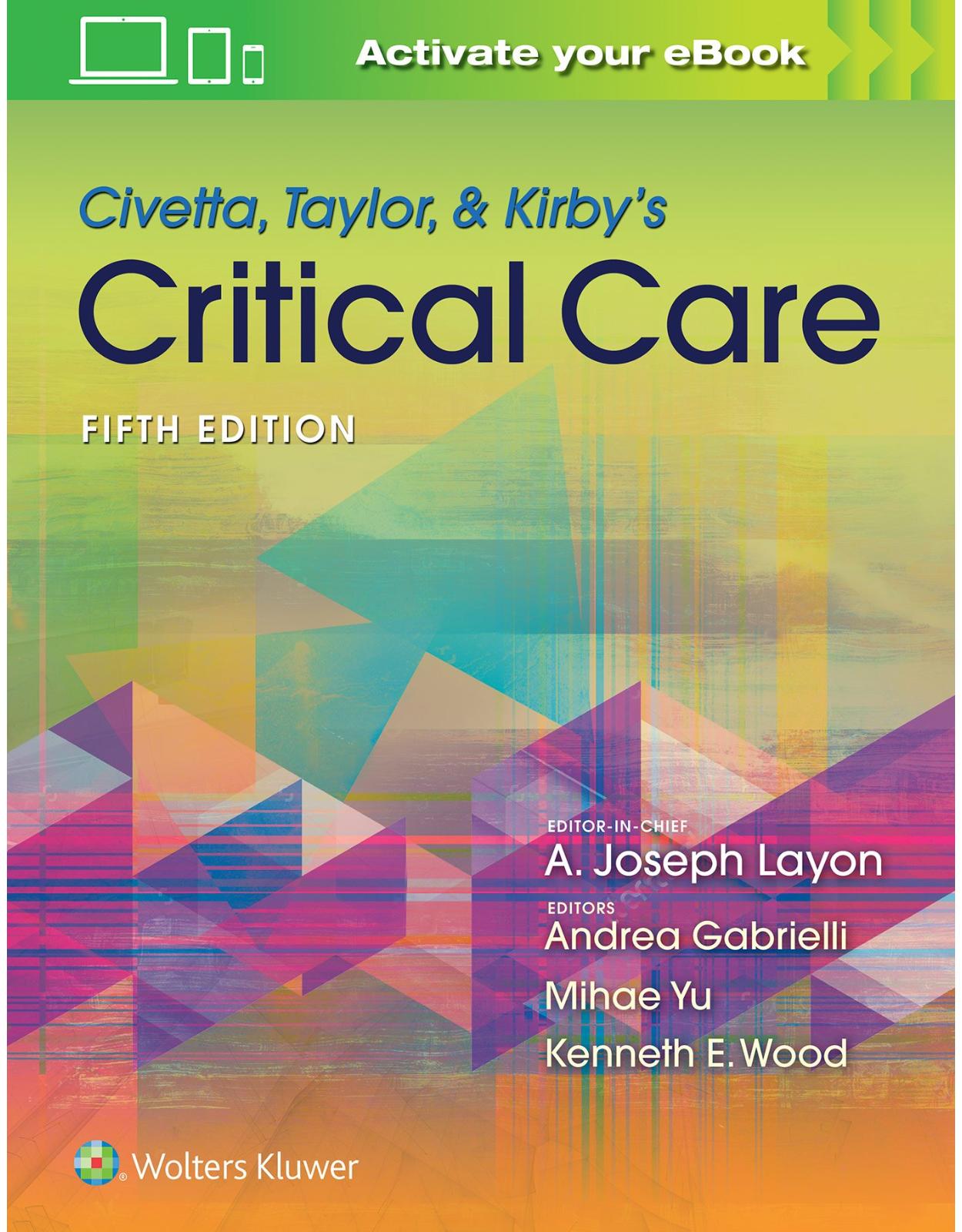
Civetta, Taylor, & Kirby's Critical Care
Livrare gratis la comenzi peste 500 RON. Pentru celelalte comenzi livrarea este 20 RON.
Disponibilitate: La comanda in aproximativ 4-6 saptamani
Autor: A. Joseph Layon MD
Editura: LWW
Limba: Engleza
Nr. pagini: 1984
Coperta: Hardcover
Dimensiuni: 213 x 276 x 59 mm
An aparitie: 11 Nov 2017
Description:
Covering every problem encountered in today’s intensive care unit, this leading critical care textbook presents the knowledge and expertise of more than 350 global experts in this fast-changing field. Beginning with the social aspects of medicine, it then discusses monitoring and organ system pathobiology followed by specific diseases states/syndromes. Each chapter begins with immediate concerns and proceeds to broader-based discussions of relevant pathophysiologic and clinical issues.
Table of Contents:
Section 1: Introduction and General Concepts
Chapter 1: Policy, Politics, and the Intensive Care Unit
Chapter 2: Life and Death in the ICU: Ethical Considerations
Chapter 3: Understanding Reactions of Patients and Families and Sharing Difficult News
Chapter 4: Judicial Involvement in End-of-Life Decisions and Informed Consent
Chapter 5: Collaborative Care: Physician and Nursing Interactions and the Foundation of a Successful Unit
Chapter 6: Clinical Decision-Making
Chapter 7: How to Read a Medical Journal and Understand Basic Statistics
Chapter 8: Quality Assurance, Safety, Outcomes, and External Compliance
Chapter 9: The Virtual ICU and Telemedicine: Computers, Electronics, and Data Management
Chapter 10: Protecting the Health Care Practitioner
Chapter 11: Transferring Critically Ill Patients
Chapter 12: Post-ICU Syndrome and the Post-ICU Clinic
Section 2: Physiology of Critical Illness
Chapter 13: Central Nervous System Physiology in Critical Illness
Chapter 14: Lung Structure and Function
Chapter 15: Cardiovascular Physiology
Chapter 16: Renal Physiology and Its Systemic Impact
Chapter 17: Gastrointestinal Physiology
Chapter 18: Allergy and Immunology
Section 3: Monitoring
Chapter 19: Invasive Pressure Monitoring: General Principles
Chapter 20: Noninvasive Cardiovascular Monitoring
Chapter 21: Hemodynamic Monitoring: Arterial and Pulmonary Artery Catheters
Chapter 22: Monitoring Tissue Perfusion and Oxygenation
Chapter 23: Pulse Oximetry, Plethysmography, Capnography, and Respiratory Monitoring
Chapter 24: Venous Oximetry
Chapter 25: Echocardiography
Chapter 26: Temperature Monitoring
Chapter 27: Blood Volume Measurement
Chapter 28: Neurologic Monitoring
Chapter 29: Radiographic Imaging and Bedside Ultrasound
Chapter 30: Neuroimaging
Chapter 31: Point-of-Care Testing
Section 4: Techniques, Procedures, and Treatments
Chapter 32: Clean and Aseptic Techniques at the Bedside
Chapter 33: Vascular Cannulation
Chapter 34: Temporary Cardiac Pacemakers
Chapter 35: Important Intensive Care Procedures
Chapter 36: Interventional Radiology
Chapter 37: Feeding Tube Placement
Chapter 38: Flexible Bronchoscopy
Chapter 39: Airway Management
Chapter 40: Indications for and Management of Tracheostomy
Chapter 41: Hyperbaric Oxygen and Critical Care
Chapter 42: Anesthesia
Section 5: Shock and Multisystem Failure
Chapter 43: The Host Response to Injury and Critical Illness
Chapter 44: Shock: General
Chapter 45: Cardiogenic Shock
Chapter 46: Sepsis and Septic Shock
Chapter 47: Hemorrhagic Shock
Chapter 48: Neurogenic Shock
Chapter 49: Anaphylactic Shock
Chapter 50: Splanchnic Flow and Resuscitation
Chapter 51: Cardiopulmonary Resuscitation in the ICU
Chapter 52: Multiple Organ Dysfunction Syndrome
Section 6: The Surgical Patient
Chapter 53: Perioperative Pulmonary Function Testing and Consultation/Preoperative Evaluation of the High-Risk Surgical Patient
Chapter 54: Anesthesia: Physiology and Postanesthesia Problems
Chapter 55: Initial Management of the Critically Ill Trauma Patient
Chapter 56: Surgical and Postsurgical Bleeding
Chapter 57: Abdominal Trauma: Nonoperative Management and Postoperative Considerations
Chapter 58: Evaluating the Acute Abdomen or Difficult Postoperative Abdomen
Chapter 59: Critical Care Implications in Acute Care Surgery
Chapter 60: Critical Care of Hepatopancreaticobiliary Surgery Patients
Chapter 61: Critical Care of Thoracic Surgery Patients
Chapter 62: Postoperative Management of Adult Cardiovascular Surgery Patients
Chapter 63: Burn Injury: Thermal and Electrical
Chapter 64: Vascular Surgery
Chapter 65: Orthopedic Critical Care
Chapter 66: Urologic Surgery and Trauma
Chapter 67: Facial Trauma
Chapter 68: Temperature-Related Injuries
Chapter 69: The Morbidly Obese Patient in the Critical Care Unit
Chapter 70: The Geriatric Patient
Section 7: Organ Transplantation
Chapter 71: Lung and Heart Transplantation
Chapter 72: Liver Transplantation
Chapter 73: Pancreatic Transplantation
Chapter 74: Small Bowel Transplantation
Chapter 75: Renal Transplantation
Chapter 76: Critical Care Aspects of Stem Cell Transplantation
Section 8: The Obstetric Gynecologic Patient
Chapter 77: The Obstetric Patient
Chapter 78: Cardiac Disease and Hypertensive Disorders in Pregnancy
Chapter 79: Hemorrhagic and Liver Disorders of Pregnancy
Chapter 80: Acute Abdomen and Trauma during Pregnancy
Chapter 81: Fetal Monitoring Concerns
Section 9: Infectious Disease
Chapter 82: The Febrile Patient
Chapter 83: Antibiotics in the Management of Serious Hospital-Acquired Infections
Chapter 84: Surgical Infections
Chapter 85: Skin Wounds and Musculoskeletal Infection
Chapter 86: Neurologic Infections
Chapter 87: Infections of the Head and Neck
Chapter 88: Hospital-Acquired Infections
Section 1 Catheter-Related Bloodstream Infections
Section 2 Respiratory Infections
Section 3 Urinary Tract Infections
Section 4 Adult Gastrointestinal Infections
Chapter 89: Fungal and Viral Infections
Chapter 90: Infections in the Immunocompromised Host
Chapter 91: Human Immunodeficiency Virus in the Intensive Care Unit
Chapter 92: Unusual Infections
Chapter 93: Emergent Pandemic Infections
Section 10: Cardiovascular Disease and Dysfunction
Chapter 94: Chest Pain and Acute Coronary Syndrome: Non–ST-Elevation Acute Coronary Syndrome and ST-Elevation Myocardial Infarction
Chapter 95: Evaluation and Management of Heart Failure
Chapter 96: Cardiac Mechanical Assist Devices
Chapter 97: Valvular Heart Disease
Chapter 98: Cardiac Dysrhythmias
Chapter 99: Pericardial Disease
Chapter 100: Acute Hypertension Management in the ICU
Section 11: Respiratory Disorders
Chapter 101: Heart–Lung Interactions
Chapter 102: Mechanical Ventilation
Chapter 103: Noninvasive Ventilatory Support Modes
Chapter 104: Invasive Ventilatory Support Modes
Chapter 105: Bedside Interpretation of Ventilatory Waveforms
Chapter 106: Weaning from Mechanical Ventilation
Chapter 107: High-Frequency Ventilation
Chapter 108: Oxygen Therapy, Respiratory Care, and Monitoring
Chapter 109: Acute Lung Injury and Acute Respiratory Distress Syndrome
Chapter 110: Extracorporeal Circulation for Respiratory or Cardiac Failure
Chapter 111: Drowning
Chapter 112: Severe Asthma Exacerbation
Chapter 113: Acute Respiratory Failure in Chronic Obstructive Pulmonary Disease
Chapter 114: Pulmonary Embolism
Chapter 115: Pleural Disease in the Intensive Care Unit
Chapter 116: Interventional Bronchoscopy and Massive Hemoptysis
Section 12: Neurologic Disease and Dysfunction
Chapter 117: Neurologic Injury: Prevention and Initial Care
Chapter 118: Elevated Intracranial Pressure
Chapter 119: Brain Death and Management of the Potential Organ Donor
Chapter 120: Altered Consciousness and Coma in the Intensive Care Unit
Chapter 121: Status Epilepticus
Chapter 122: Neuromuscular Disorders
Chapter 123: Delirium and Behavioral Disturbances
Chapter 124: Central Nervous System Vascular Disease
Section 13: Gastrointestinal Disease and Dysfunction
Chapter 125: Upper Gastrointestinal Bleeding
Chapter 126: Lower Gastrointestinal Bleeding
Chapter 127: Liver Failure: Acute and Acute-on-Chronic
Chapter 128: Pancreatic Disease
Chapter 129: Inflammatory Bowel Disease and Toxic Megacolon
Chapter 130: Esophageal Disorders
Chapter 131: Mesenteric Ischemia
Section 14: Renal Disease and Dysfunction
Chapter 132: Acute Renal Injury
Chapter 133: Renal Replacement Therapy
Chapter 134: Fluid and Electrolytes
Chapter 135: Blood Gas Analysis and Acid–Base Disorders
Section 15: Endocrine Disease and Dysfunction
Chapter 136: Endocrinopathy in the ICU
Chapter 137: Disordered Glucose Metabolism
Chapter 138: The Adrenal Gland in Critical Illness
Chapter 139: Pheochromocytoma
Chapter 140: Thyroid Disorders
Section 16: Skin, Muscle, and Bone Disease and Dysfunction
Chapter 141: Autoimmune and Connective Tissue Disorders
Chapter 142: Dermatologic Conditions
Section 17: Hematologic and Oncologic Disease and Dysfunction
Chapter 143: Coagulation Issues
Chapter 144: Transfusion Therapy: When to Use It and How to Minimize It
Chapter 145: Antithrombotic and Thrombolytic Therapy
Chapter 146: Hematologic Conditions
Chapter 147: Oncologic Emergencies
Section 18: Pharmacology, Nutrition, Toxicology, and the Environment
Chapter 148: Pharmacologic Principles
Chapter 149: Sedation and Neuromuscular Blockade
Chapter 150: Nutritional Issues and Practical Aspects of Nutritional Support
Chapter 151: Toxicology
Chapter 152: Substance Abuse and Withdrawal: Alcohol, Cocaine, Opioids, and Other Drugs
Chapter 153: Envenomation
Chapter 154: Molecular and Metabolic Perspectives on Genetics in the ICU
Section 19: Disaster Management
Chapter 155: Mass Casualty Incidents: Organizational and Triage Management Issues
Chapter 156: Bioterrorism and High-Consequence Biologic Threats
Chapter 157: Disaster Response
Appendices: Critical Care Catalog
A Prefixes and Conversions
B Dubois Body Surface Area Nomogram
C Fluids and Electrolytes
D Acid–Base Balance
E Formulas
F Pharmacology
G Dermatomes and Rule of Nines
H Severity Scoring Systems, Organ Injury Scaling and Trauma Scoring Systems 1846
I Analgesia–Sedation Scores and Tools
J Antibiotics
Index
| An aparitie | 11 Nov 2017 |
| Autor | A. Joseph Layon MD |
| Dimensiuni | 213 x 276 x 59 mm |
| Editura | LWW |
| Format | Hardcover |
| ISBN | 9781469889849 |
| Limba | Engleza |
| Nr pag | 1984 |

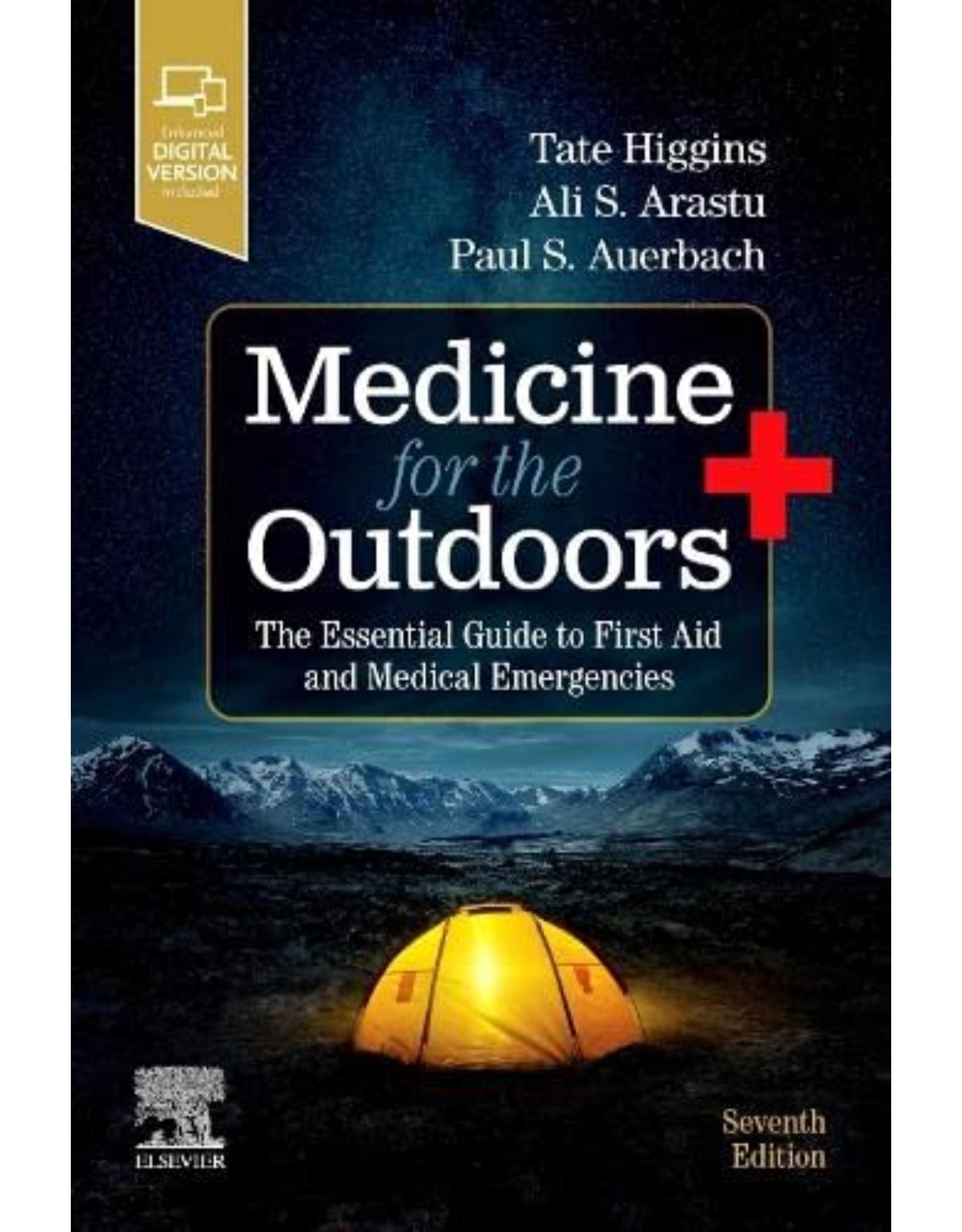
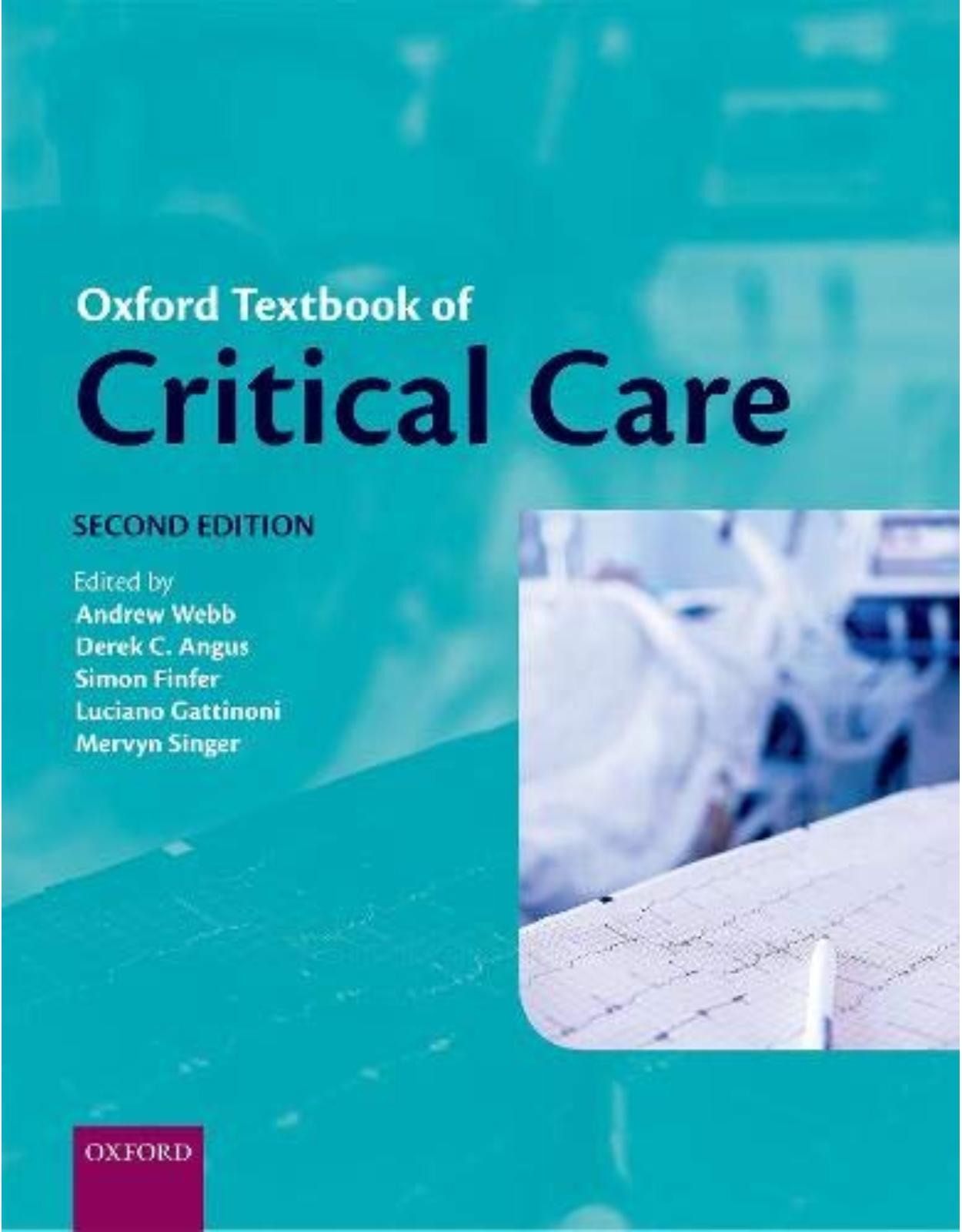
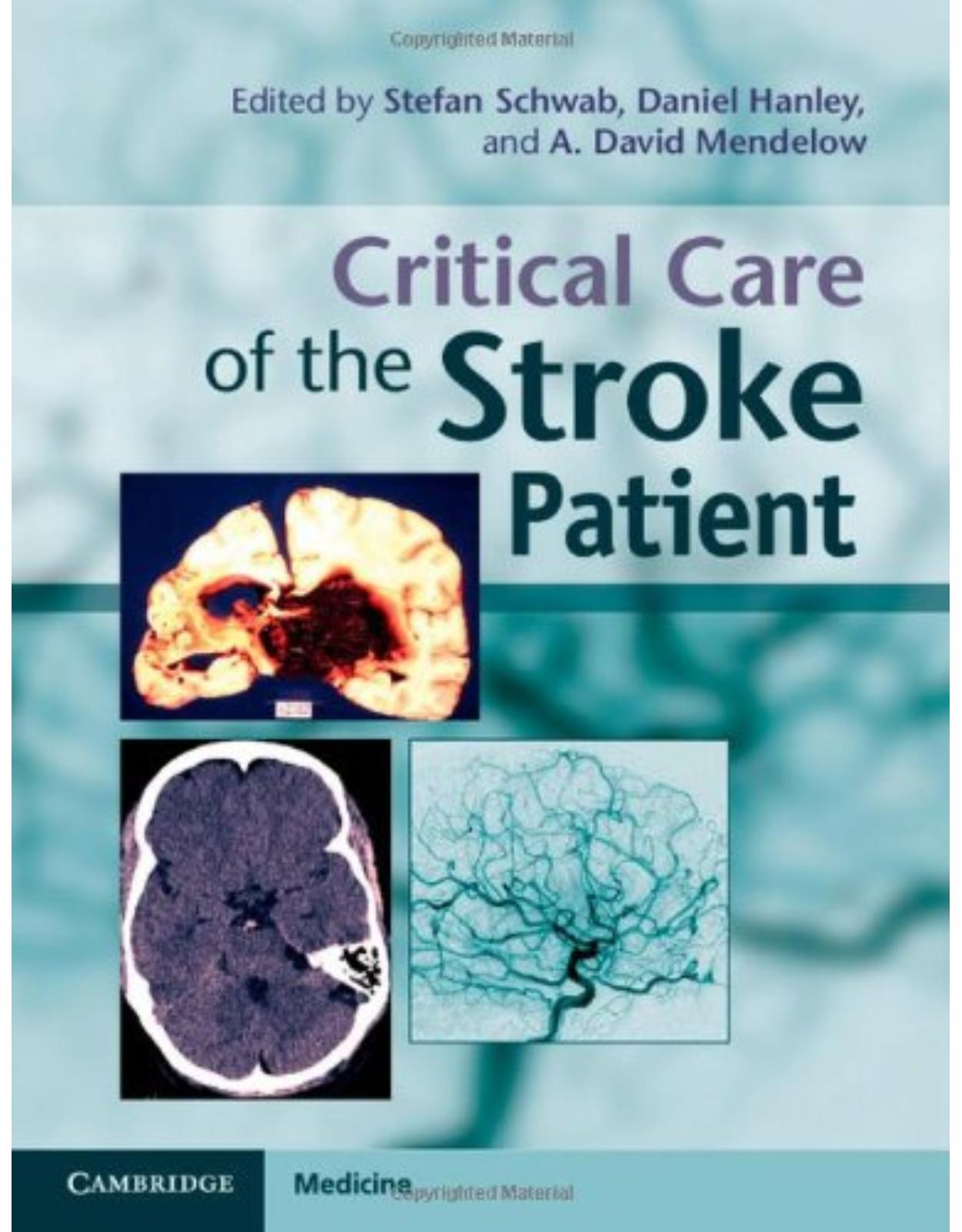
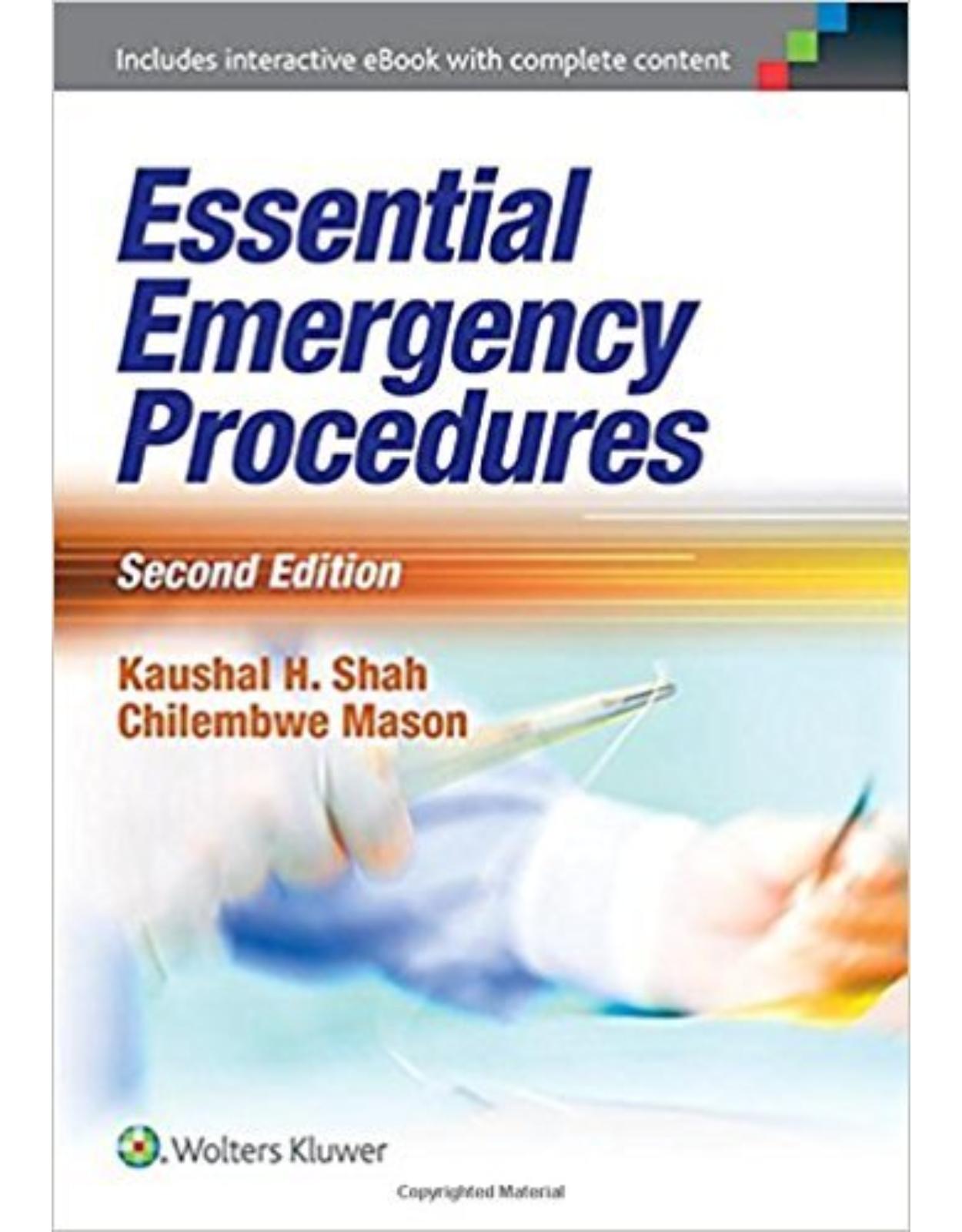
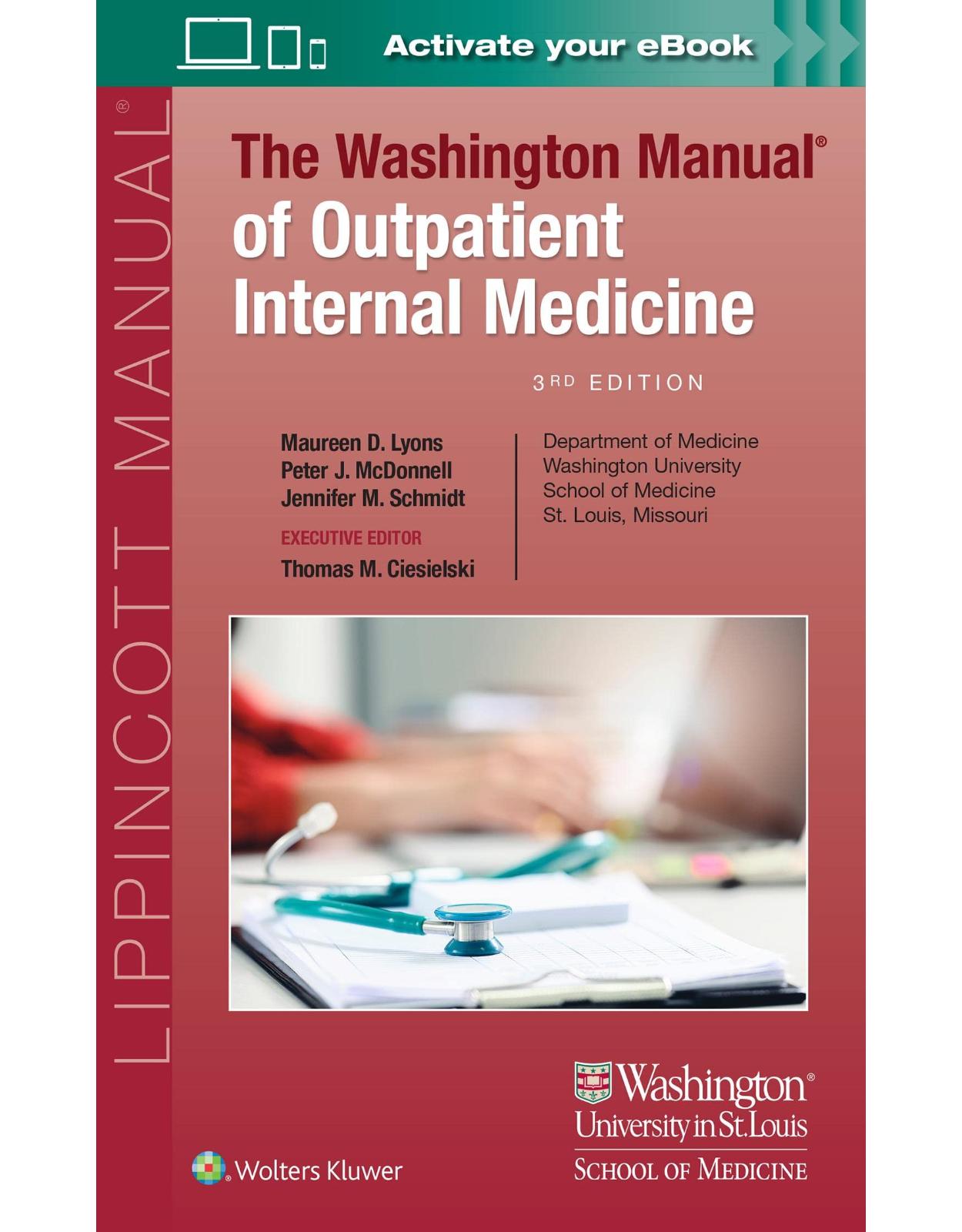
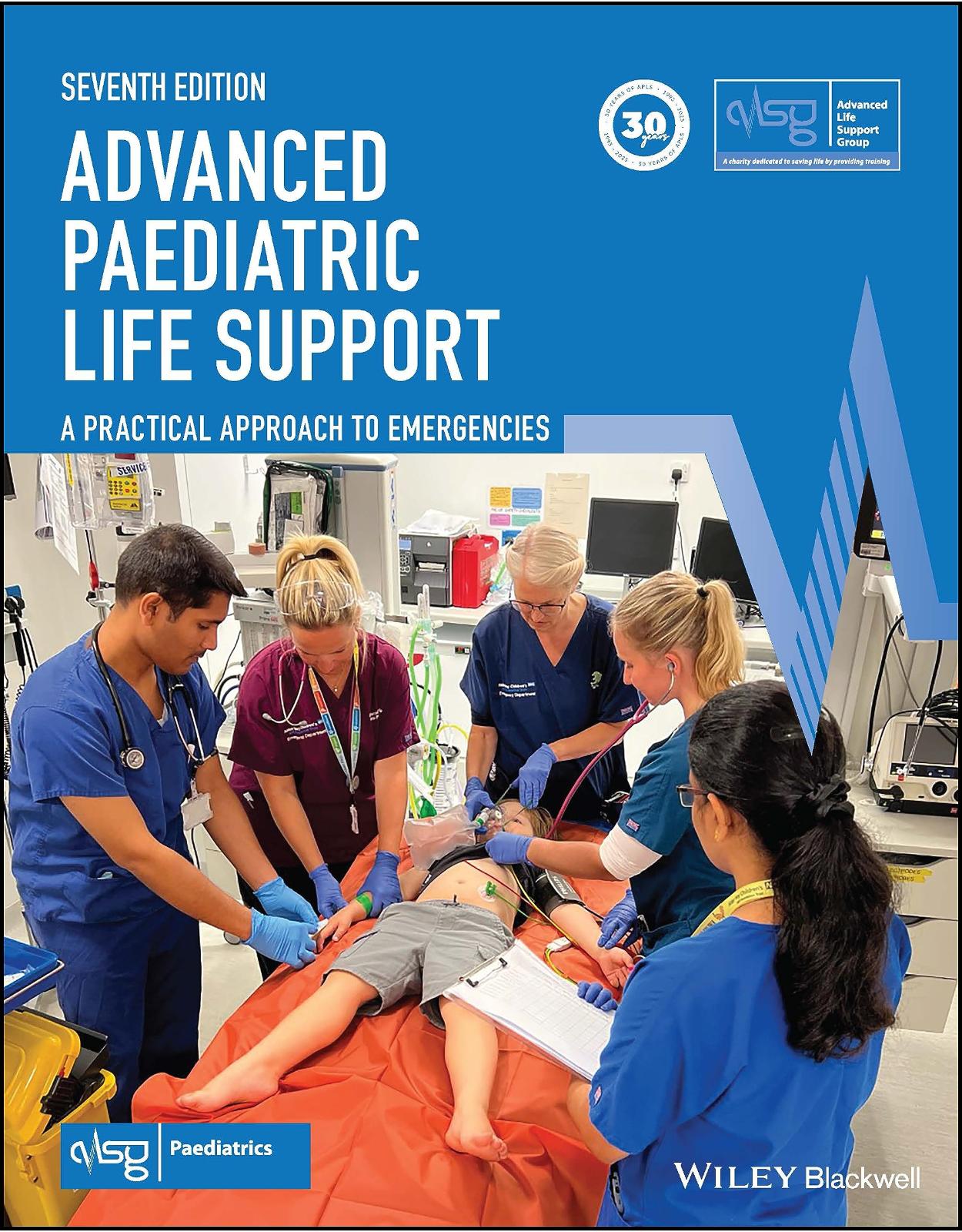
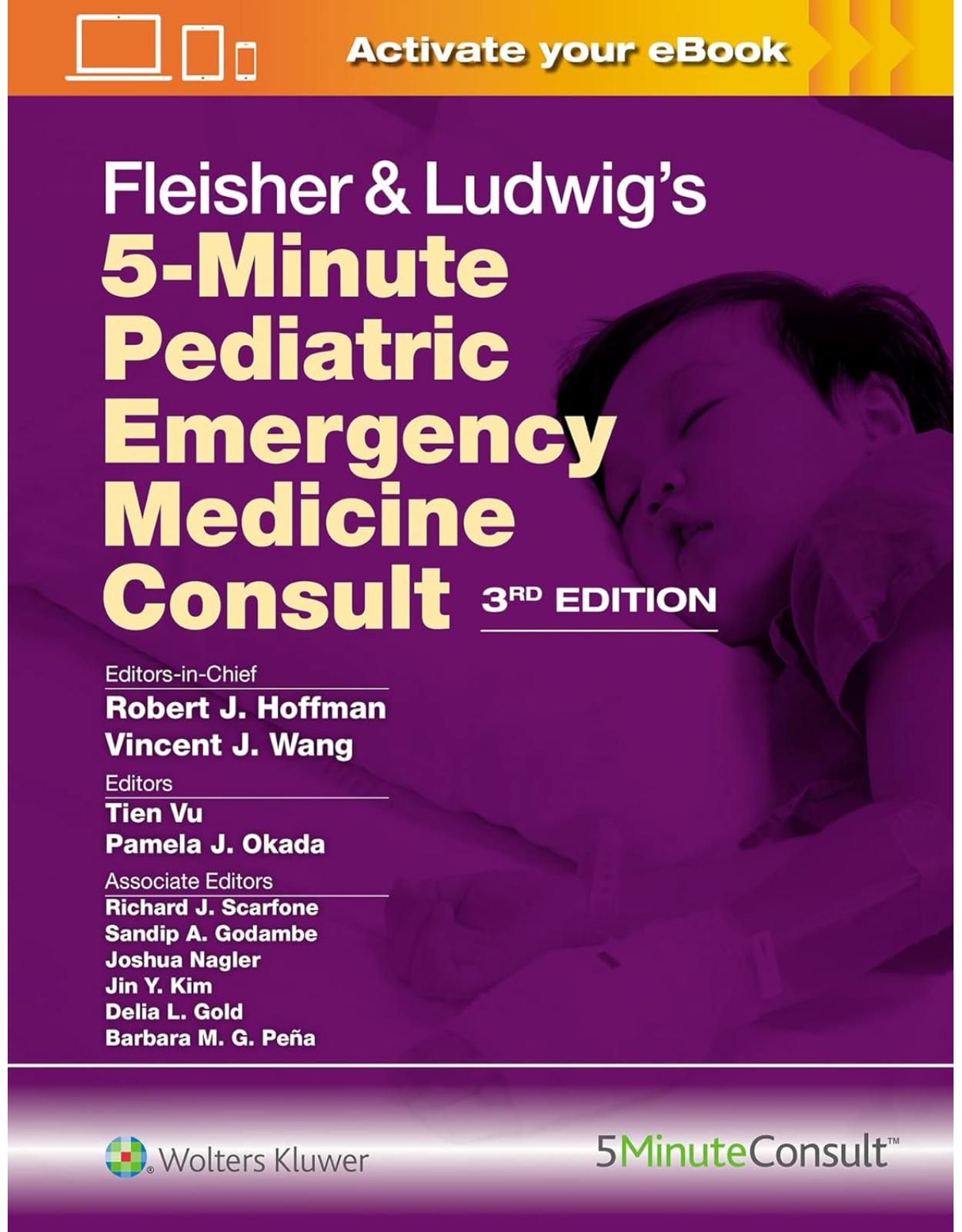

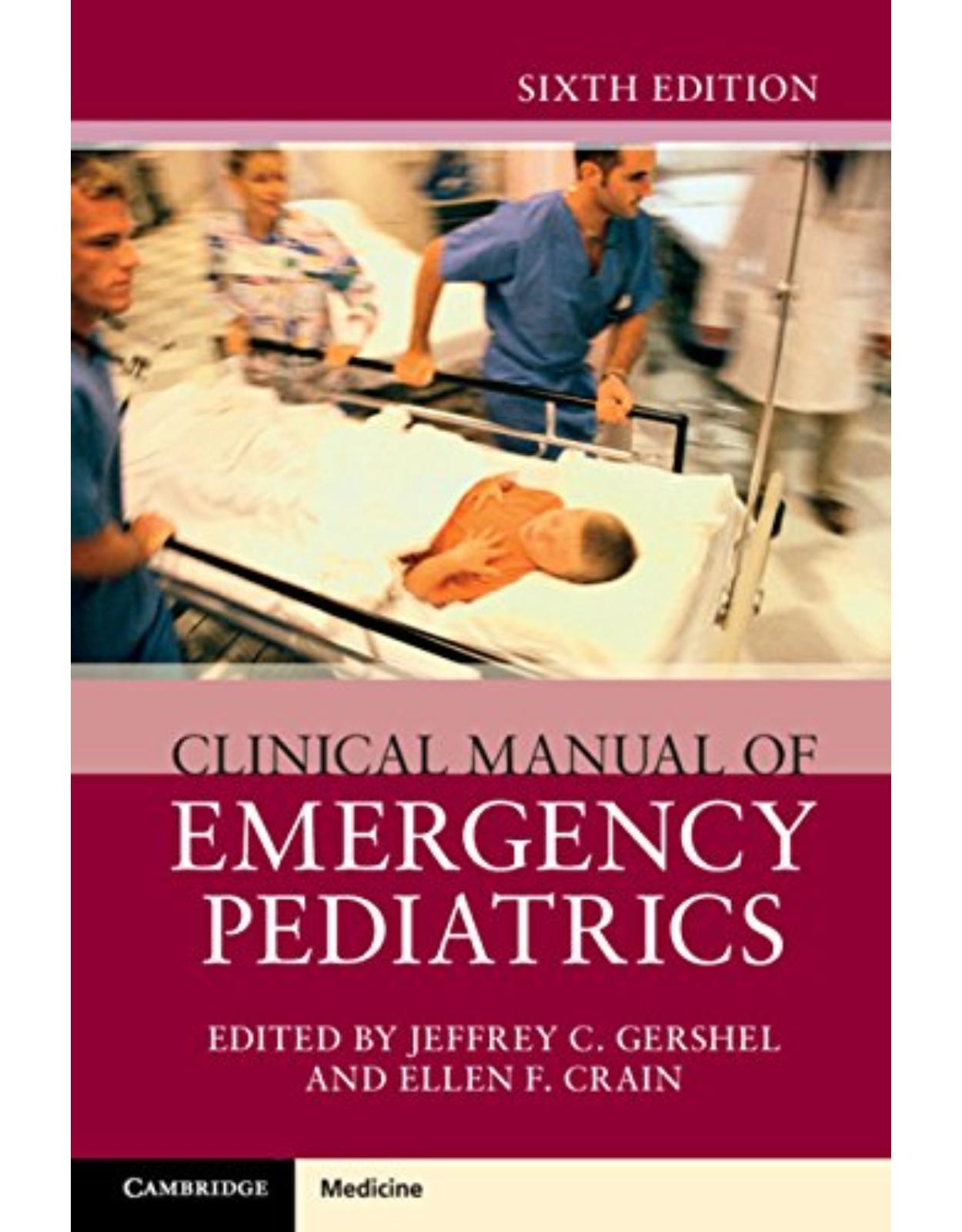
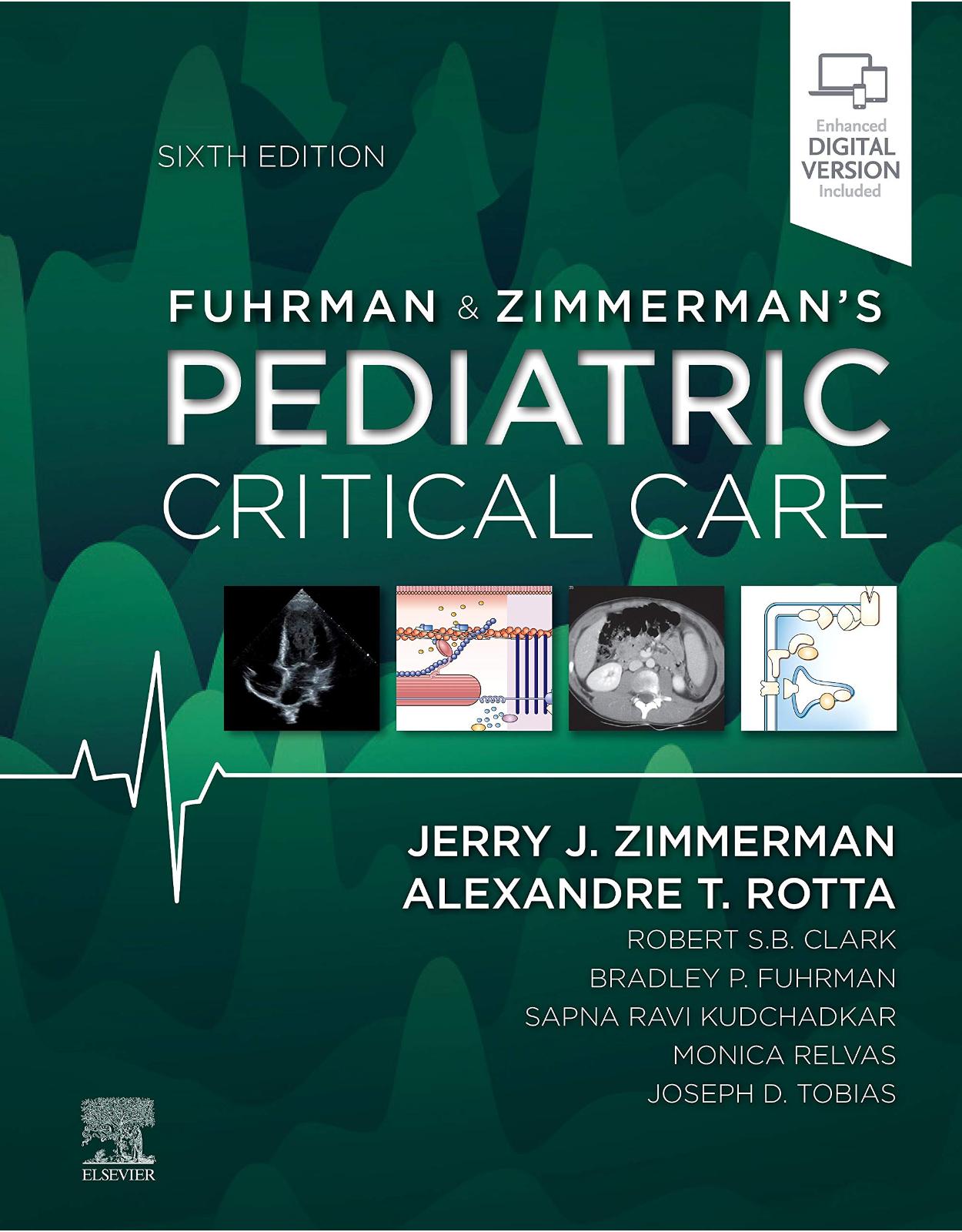

Clientii ebookshop.ro nu au adaugat inca opinii pentru acest produs. Fii primul care adauga o parere, folosind formularul de mai jos.